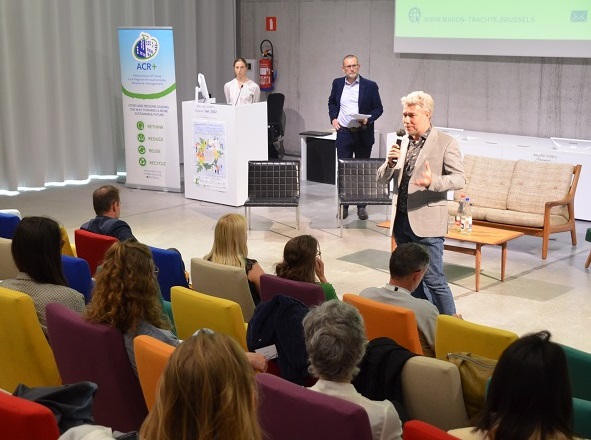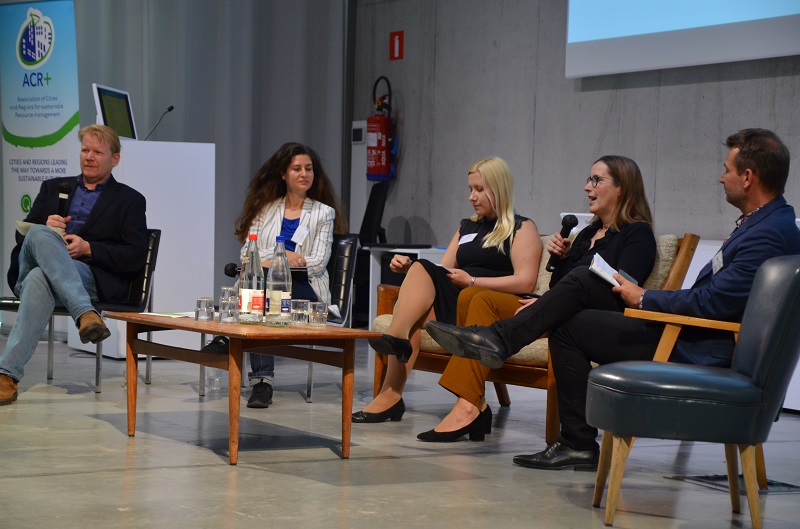BLUEISLANDS
ACR+ invites its members to approach circular economy as a holistic system
How can communities of practice accelerate the transition towards a circular and resilient Europe? ACR+ invited experts to discuss the pathways to a circular resilient Europe with its members during an Open Session of its General Assembly 2022. Moving away from the traditional definition of a model of production and consumption aiming to keep materials and products as long as possible, participants were suggested to take into consideration all aspects of sustainability when talking about circular economy, especially the cultural one.

Since then, ACR+ has come a long way and is now recognized as one of the key international actors representing and supporting cities and regions in the transition towards circular economy. Building on its experience, the network invited key experts to join the Open Session of its General Assembly and discuss with its members how to empower the sustainable transition and give way to a circular resilient Europe. Guided by a keynote speech of Mathieu Leporini, Scientific Researcher and Cooperation Expert at the CERDI Université Clermont Auvergne – CNRS, the audience of the BEL Conference Centre was invited to approach the circular economy under a broader perspective. He highlighted the importance of not only holistic and systemic approaches but also cooperation when talking about circular economy. To change this paradigm, a cultural shift is needed since cultural barriers are the biggest ones on our current path to a resilient Europe. This is why, he recommended ACR+ members to integrate all aspects of sustainability, especially social, cultural and political ones, in the circular solutions that they develop.

Whatever the definition adopted at individual level is, the participants of the ACR+ General Assembly agreed that the transition to a circular economy must be accelerated and made accessible to all. This will become a reality on the condition of also adopting on a wide scale the appropriate sufficiency in energy, food, and manufactured products consumption. By building connections between its members and with experts as those invited for the Open Session, ACR+ is acting in this direction. It offers tools and support for local authorities to deliver concrete solutions and make things happen on the ground for citizens.
- - ENDS - -









